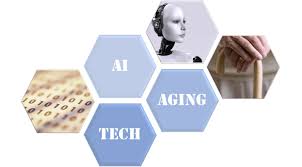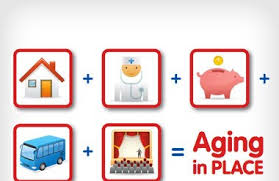Nuance Audio is a new option for people who resist traditional aids, from the company that makes Ray-Bans and operates LensCrafters.
Seekers of Meaning Podcast Posted Online March 7, 2025
What's Next Longevity Deal Talk Episode 32, January, 2025
Presentation: What's Next Longevity Venture Summit, June, 2025

 The population is aging – and still, the tech solution market is immature. Investors of all types demonstrate interest in a product here and an offering there. Competitions highlight product winners; money is raised for one product at a time. One reason for the immaturity of the market is the behavior of buyers. Senior living companies buy a product for this and
The population is aging – and still, the tech solution market is immature. Investors of all types demonstrate interest in a product here and an offering there. Competitions highlight product winners; money is raised for one product at a time. One reason for the immaturity of the market is the behavior of buyers. Senior living companies buy a product for this and  You can read about AI -- it's discussed everywhere. Searches reveal the many
You can read about AI -- it's discussed everywhere. Searches reveal the many  Aging in place -- sounds good, but for many, it won't work. The optimistic older adulta like their home -- and they tell survey firms that they're going to stay. We've heard this before. Ironically, in those days, it may have been a practical idea -- but as older adults age into the years in which they need care, the rising cost of the care they need may outpace their ability to pay, so what then? Family members help out if there are any, if they can, if they're nearby, and if they are willing. A lot of ifs. For the rest, we are entering a period in which more creative options will be needed and some old words, like 'roommates' and 'co-housing' will resurface.
Aging in place -- sounds good, but for many, it won't work. The optimistic older adulta like their home -- and they tell survey firms that they're going to stay. We've heard this before. Ironically, in those days, it may have been a practical idea -- but as older adults age into the years in which they need care, the rising cost of the care they need may outpace their ability to pay, so what then? Family members help out if there are any, if they can, if they're nearby, and if they are willing. A lot of ifs. For the rest, we are entering a period in which more creative options will be needed and some old words, like 'roommates' and 'co-housing' will resurface.